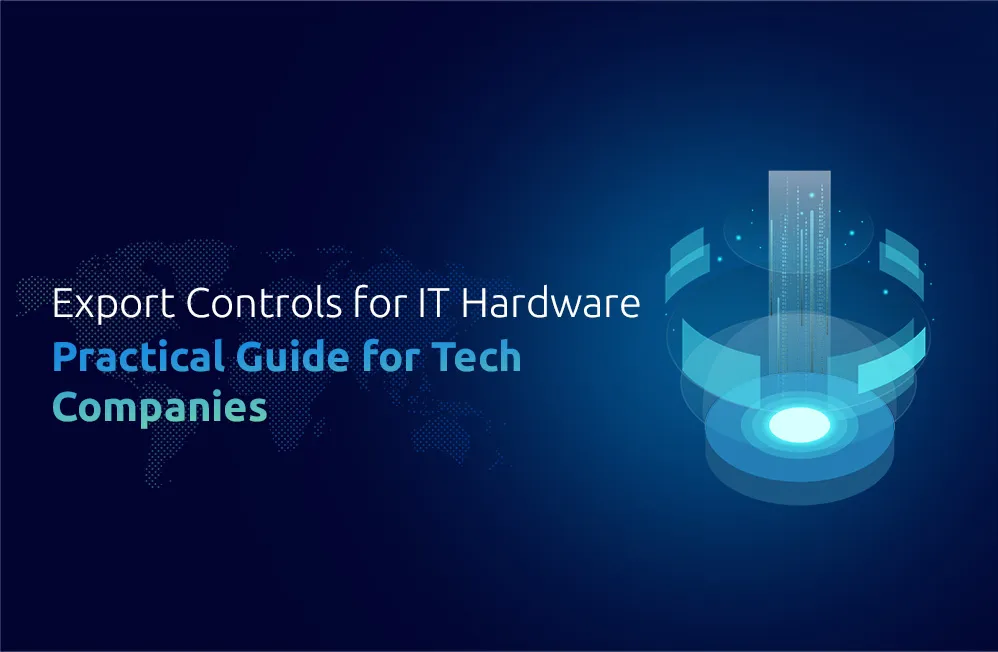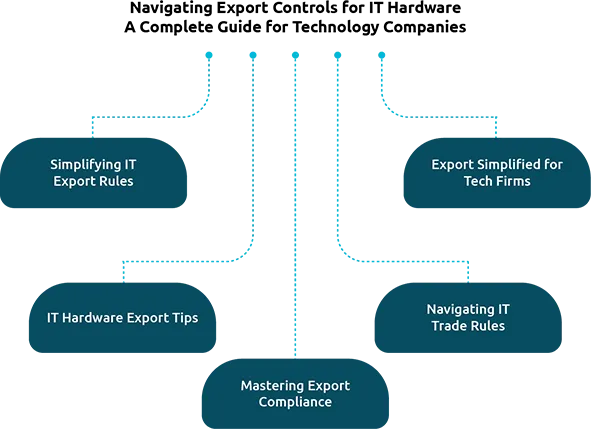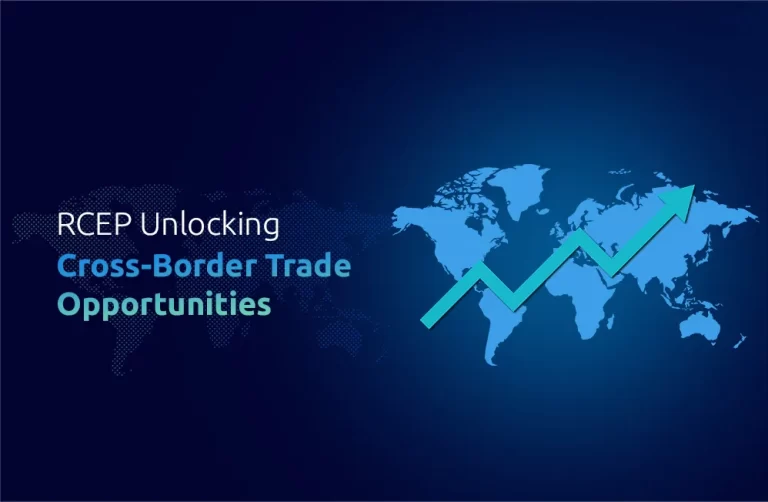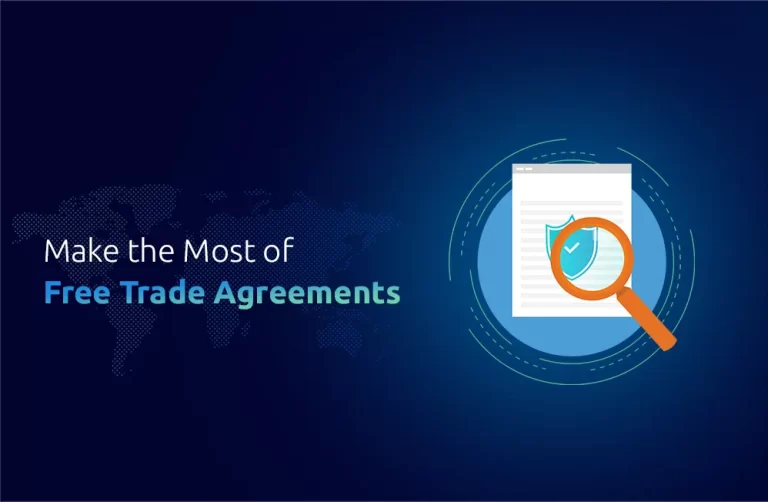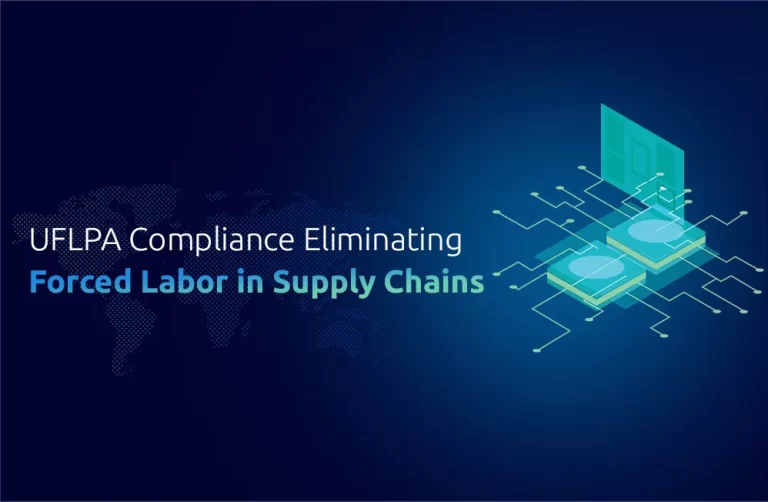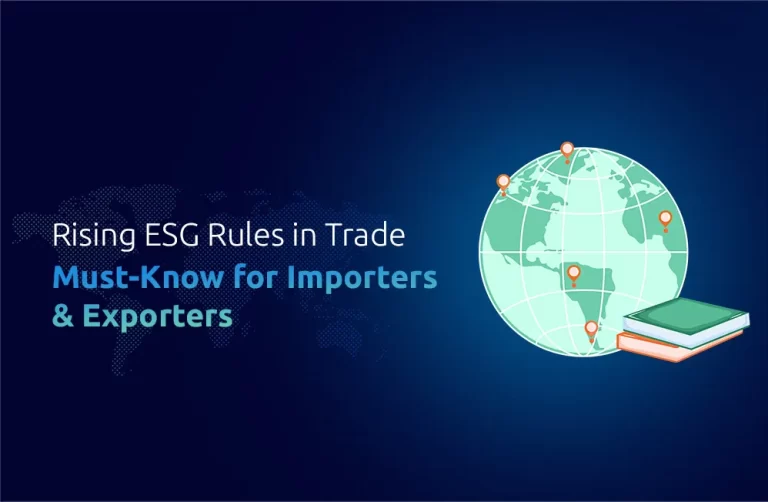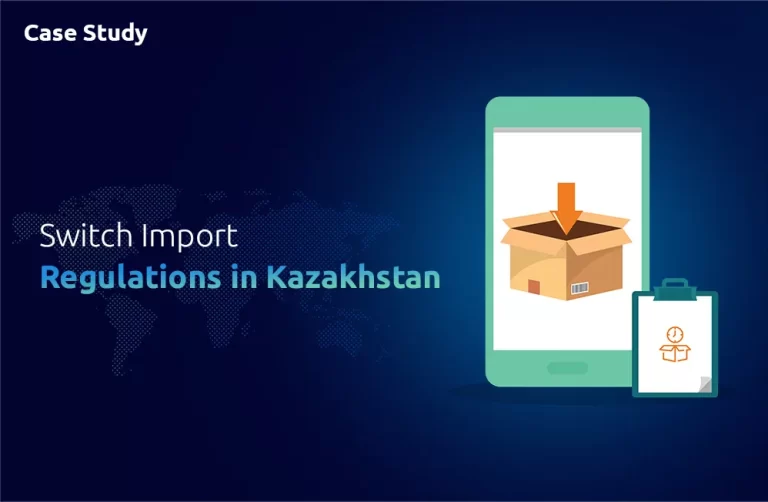Insight
Global business expansion relies heavily on exporting IT hardware to international trade within the modern connected world. International export compliance has grown more demanding because national security concerns have intensified. National governments impose export controls as legal barriers to handle the worldwide distribution of sensitive technologies and IT hardware, ensuring these products will not cause security threats or disrupt international peace. Companies planning global expansion need full knowledge of export control standards to stay safe from penalties and avoid shipment delays and denial of export licenses.
National export control policies for technology shipments derive their requirements from technology categories and territorial rules. Implementers must adhere to rigorous controls when dealing with IT hardware products ranging from servers to storage devices, network infrastructure, and equipment. This guide presents essential elements that technology businesses should handle regarding IT hardware export controls, including an examination of local legislations and international legal requirements.
What Are Export Controls for IT Hardware?
Exporting sensitive products, technologies, and services to foreign countries follows precise legal guidelines named export controls. Such regulations aim to stop materials threatening national security and enable weapons of mass destruction development with elements that may impair national interests. IT hardware companies need to guarantee that their exported products maintain full exportability because additional export restrictions and licensing requirements would prohibit these shipments.
Control regulations for exports differ substantially based on the kind of product and the target location. The law needs an export license to transport certain products that belong to advanced technology categories out of the country. Exporting less sensitive products requires proper documentation and trade regulatory compliance, although they do not need to obtain a special license.
Understanding Export Control Regulations
All IT hardware exporters must know the national authorities’ regulations in their home territory. The government entities in numerous nations regulate export control operations. The Bureau of Industry and Security (BIS), operating under the Department of Commerce, oversees IT hardware export regulations and additional technological exports throughout the United States. The BIS operates the Commerce Control List (CCL) to document particular items and technologies being controlled and establish export permissions.
The determination of export controls depends heavily on where a product will be delivered. Specific countries experience strict control procedures because of national security conditions and international diplomatic situations. Military sanctions and economic embargoes impose limitations regarding the import of sensitive technologies, including IT hardware. Businesses must determine the terminal destination of shipments and meet all destination-specific restrictions.
Integrated export controls of sensitive technologies are governed by national law and the Wassenaar Arrangement regulatory framework. Participating member states in the multilateral export control regime exceed 40 countries to guarantee that advanced technologies stay away from potential security threats in certain countries or groups.
Export Licensing: When Is It Required?
Export licensing is a crucial component for implementing export controls on IT hardware. Companies need licenses that depend on the hardware types and technological components and the country that receives the hardware. The shipment of subject products to foreign countries requires an export license.
A license requirement depends on which category of product needs to be exported. Several product categories exist for export control because they contain military functionalities or dual-use characteristics, including encryption technologies and superior computing capabilities. The necessity of a license extends across all foreign destinations in specific cases.
Companies that export IT hardware must completely grasp the regulatory authority classification system to ensure successful exports. Under the Commerce Control List (CCL) of the United States, organizations can find category standards that show product requirements for export licenses. The company must obtain export approval from the relevant authority to ship its products because they belong to a license-requiring classification.
Conclusion
Export control management of IT hardware remains important for companies engaging in worldwide business operations. Businesses that export IT technologies need to comprehend the intricate system of international shipping regulations, mandatory licensing procedures, and compliance protocols. Businesses that keep themselves informed about present export control developments will achieve compliant international transactions with smooth operations, avoiding significant penalties. One Union Solutions supports technology firms facing export control management complexities through their expert services, which help guarantee shipment compliance with all applicable rules.
Did You Know,
The U.S. Department of Commerce documented that maintained exports, valued at $2.5 trillion, including IT hardware, surpassed the threshold in 2020.
FAQs
What functions do export controls on IT hardware serve?
Rules for export control govern the flow of sensitive technological equipment to prevent mishandling, which endangers national safety and international peace.
Which signs indicate that IT hardware needs export licensing?
The CCL and relevant regulatory bodies serve as tools to identify whether export licenses are necessary by checking the classification of the hardware.
What happens when organizations break export control regulations?
Failure to comply with export requirements leads to severe penalties involving major fines, shipment delays, and damage to your enterprise’s reputation. The infringement of export control regulations leads to prison sentences when the severity reaches extreme levels.
What responsibilities do end-users have when it comes to export control compliance?
You need to evaluate both the hardware user and their planned use of the equipment to guarantee compliance with export control protocols while avoiding improper utilization.
Which systems do businesses require to control export control risks effectively?
Businesses can minimize export control violations through three effective strategies: compliance screening, due diligence, and employee training.

